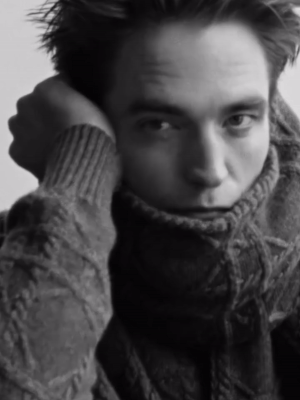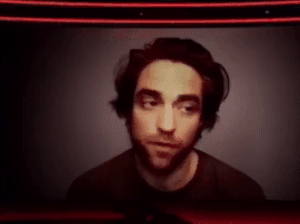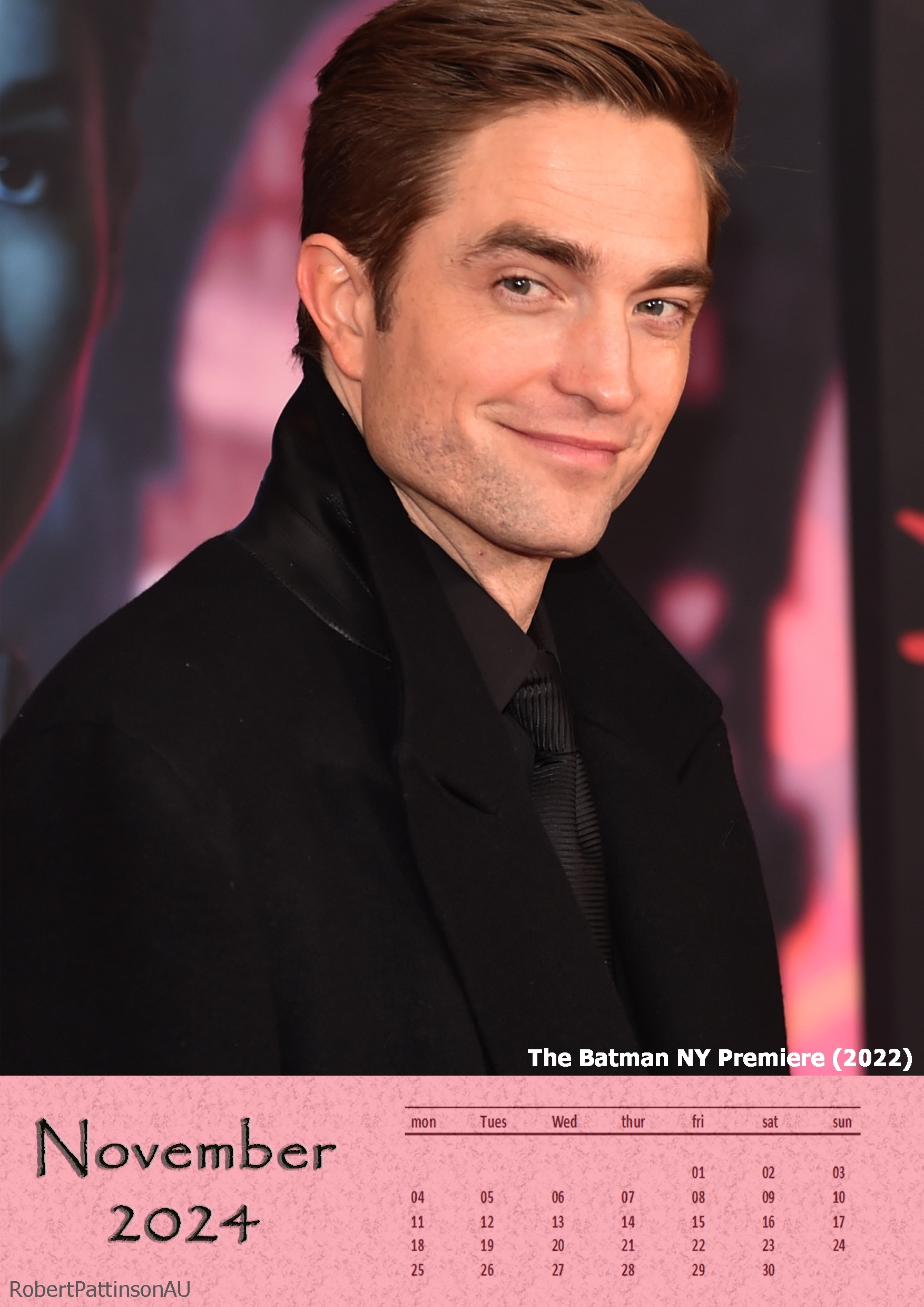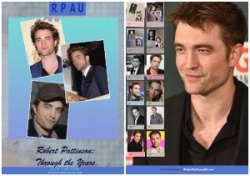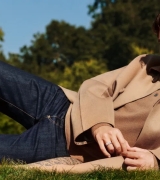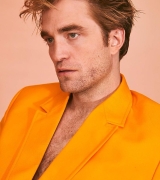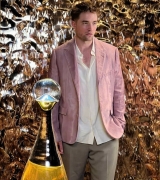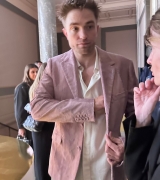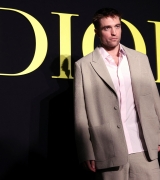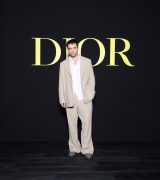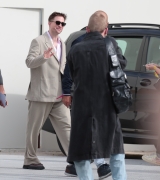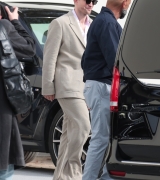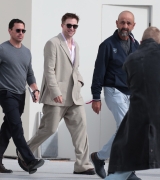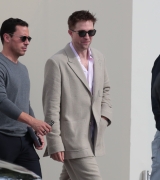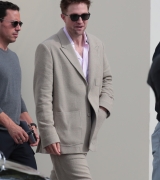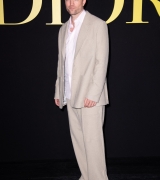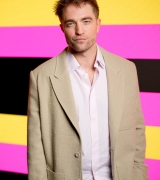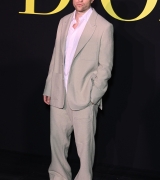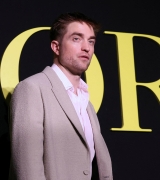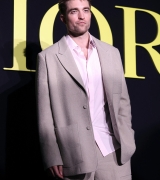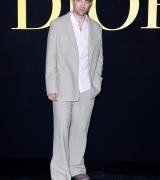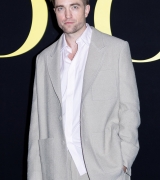Some of the questions and answers we’ve read in other interviews, but parts of this are new.
“Robert Pattinson -not unlike James Dean- became a star overnight. Subsequently he has difficulties to loose the shadow of the vampire and that is what we talked about.
Mr. Pattinson would you have played James Dean if you would have been offered the role?
I would never have accepted the role of James Dean. Especially because I dom’t even look like him. Dane DeHaan does, I would have made a fool out of myself.
In the movie you are not the one in the limelight, but you are on the other side of the carpet as the photographer of the beautiful and famous. That must have been unusual for you.
My character Dennis Stock isn’t really made for the red carpet. there is a scene in the movie where it’s visible how embarrassing it is for him to do those gossip pictures but he has no other choice because he needs the money. So he becomes part of the photographers that push and shove to get the perfect picture.
How do you deal with popularity? That is the key question for famous people, isn’t it?
It is weird, because I never really knew what popularity means. Some people got to know me better in these past years and they know that the character that people cheer for doesn’t really exist. It’s different for a popstar, because their name is the main focus whereas an actor plays different characters all the time. It is weird when you are cheered on for something and that is not really you, but at the same time this popularity helps you because you are not really hyped up as a person, it’s more the character you play.
The movie shows a star before he becomes a star, it’s about the months before it really started. I talked to you for the first time in 2008 just after the first Twilight movie was finished and no one knew if the concept would add up. You were a star that wasn’t a star yet and a few weeks later everything changed. How did you feel in that moment before the storm started?
There hasn’t been another phase like that in my life. Everything fit back then: I think I had the right age for a hype like that. At 21 I was young enough, but not too young and I was able to have a youth. The year before Twilight came into the cinemas was a lot of fun. I experienced the good sides of fame and not really realizing what was happening around me. The very first touch with fame is amazing, some ridiculous things like getting into clubs for example. I got into clubs they threw me out of before (laughs).
Nevertheless you stayed pretty grounded. How did you manage to do that?
I don’t know. I think I still have to prove a lot to myself in different aspects of my life. Sometimes I really wish I had a bigger ego. That would help me to take more out of this thing.
Someone like you should not have a problem with ego.
Of course I have an ego. A certain amount of it is necessary to even go in front of the camera, no? Apart from that I see myself as shy and as a control freak. It is weird, because you can’t really say it like that. Whenever I work with seasoned directors they always ask me: “Why do you always say you don’t know what you are doing? I can see that you are doing something.” I always answer: “Yes, but I don’t know how.”
Is there a little after the hype for you?
Yes, and it’s just happening. It’s very frustrating when you loose control over your life and try not to drown all the time. After the hype of the first Twilight my agent told me: “It will take ten years until you reach the next chapter in your life.” Today I know he was right. Seven years have passed and my life is rearranging itself completely. I’m a different person now than I was back then. I think Leonardo Dicaprio experienced the same thing after Titanic and it’s behind him today.
What is your key to surviving career traps?
I think I’m led by my head unlike some of my colleagues and that allows me a distant look on myself. At the same time I worry too much about everything. I always have the problem of wanting to prove myself with my roles.
You are doing more art-house productions now, a farewell to mainstream?
Maybe. I just want to work with people that do good stuff. The point is: I don’t care if a movie is well-payed or does well at the box-office. Don’t get me wrong, I don’t have anything against commercial movies and I like doing them, but if something is done for the art and for art’s sake, those are the best projects. The day I do my last movie and I know there won’t be another one I want to ask myself: “Why did you do that movie and if the answer is ‘I did it for the money’, I would want to smack myself in the head.
Source via Rob’s Footsteps | Translation @Inthejungle
